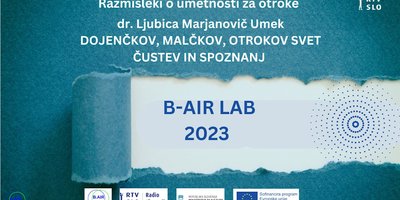Insight of neuroscience and developmental psychology theories, particularly socio-cultural ones, affirms that the earliest development periods, those of the infant and baby, are most susceptible to learning and growth.
Social contexts such as talking to the infant/baby/child, encouraging their independent speech and storytelling, reading together with children, participating in drawing and symbolism play significantly affect a range of children's developmental aspects, especially the development of speech, imagination, attention, memory, empathy, social cue understanding, and the experience and expression of emotion.
The lectures will also explore how adults may join children's activities in concrete ways while preserving their pace and encouraging children's interest and participation.
**
Dist. prof. dr. Ljubica Marjanovič Umek lectures several developmental psychology courses at the Department of Psychology and at the Department of Pedagogy and Andragogy of the Faculty of Arts, University of Ljubljana. Her research deals primarily with the development of children's speech, cognitive, and social skills in relation to the factors of the family and kindergarten environments. She is also engaged with applicative content such as child's play and drawing, adults reading with children, and children's storytelling. She is an author or co-author of several scientific and expert books and numerous academic articles published in the domestic and international space.

